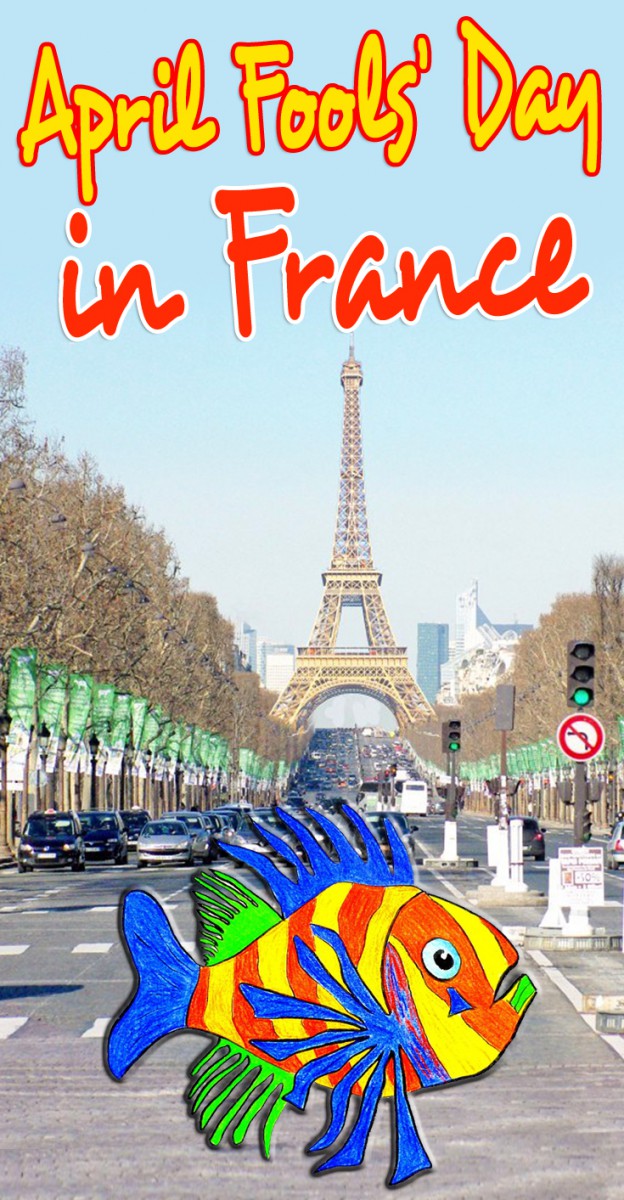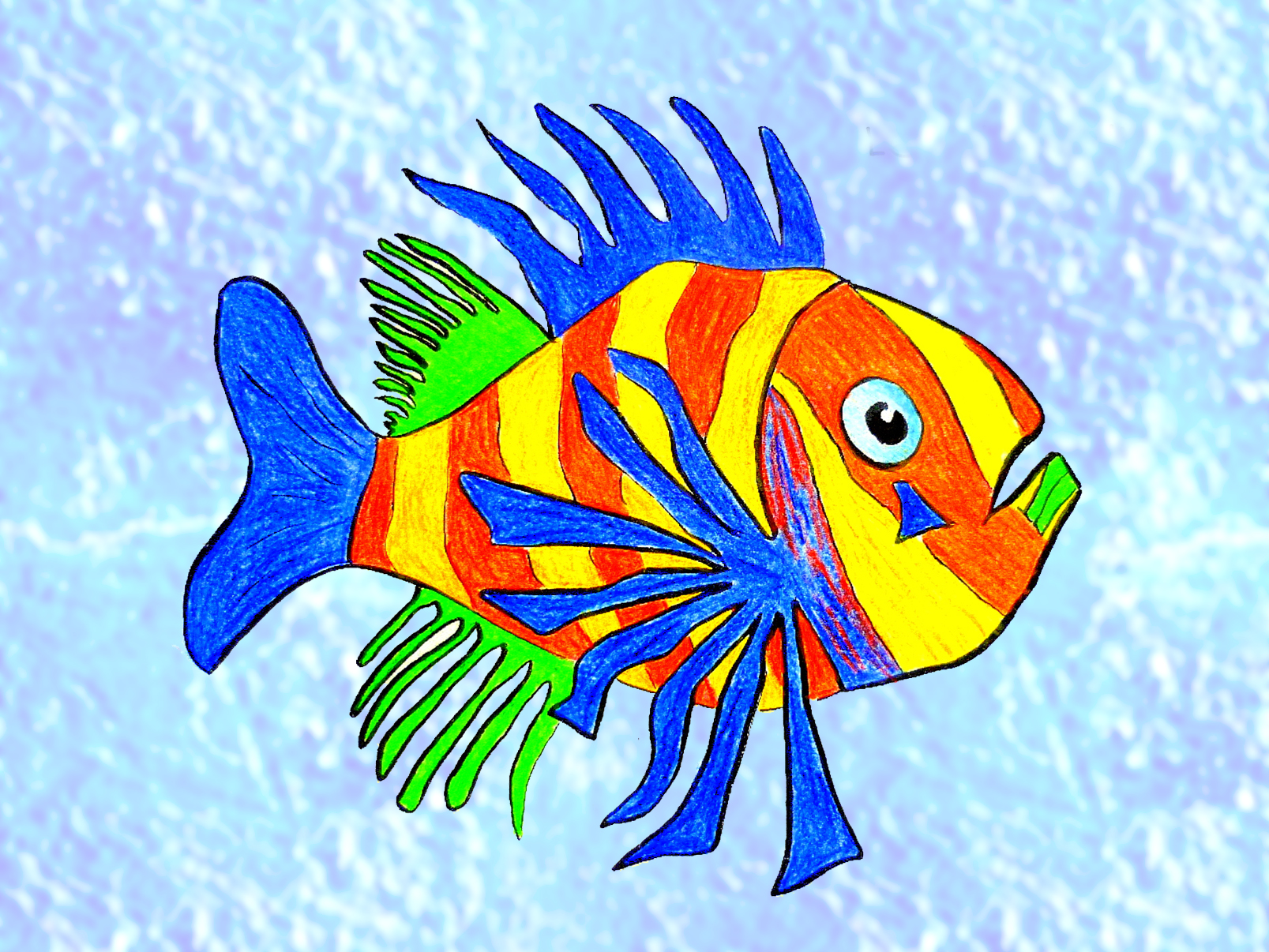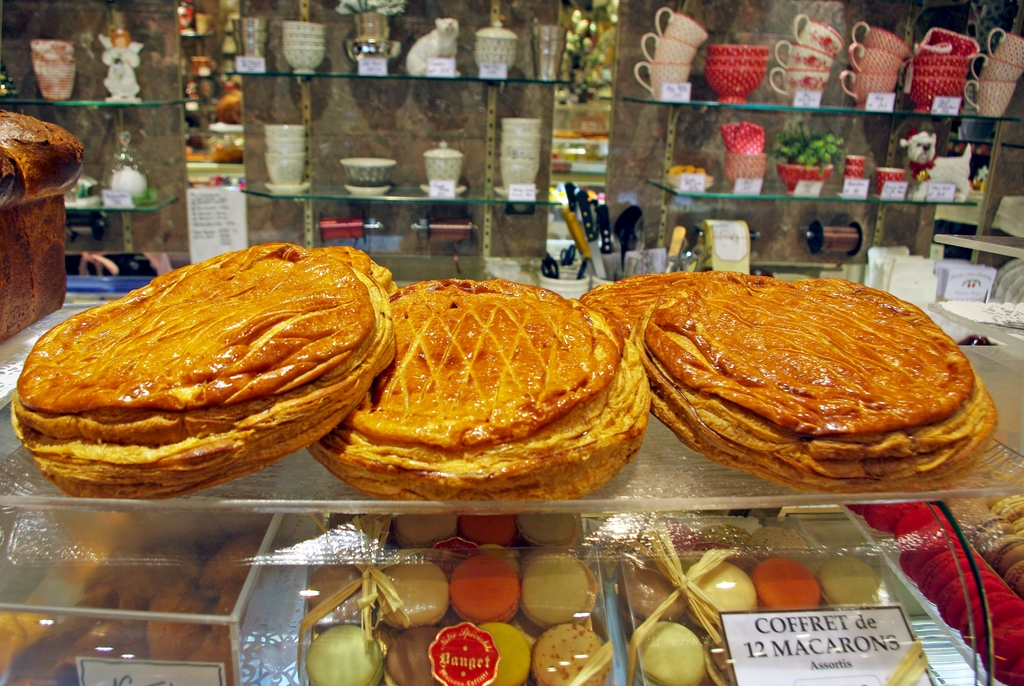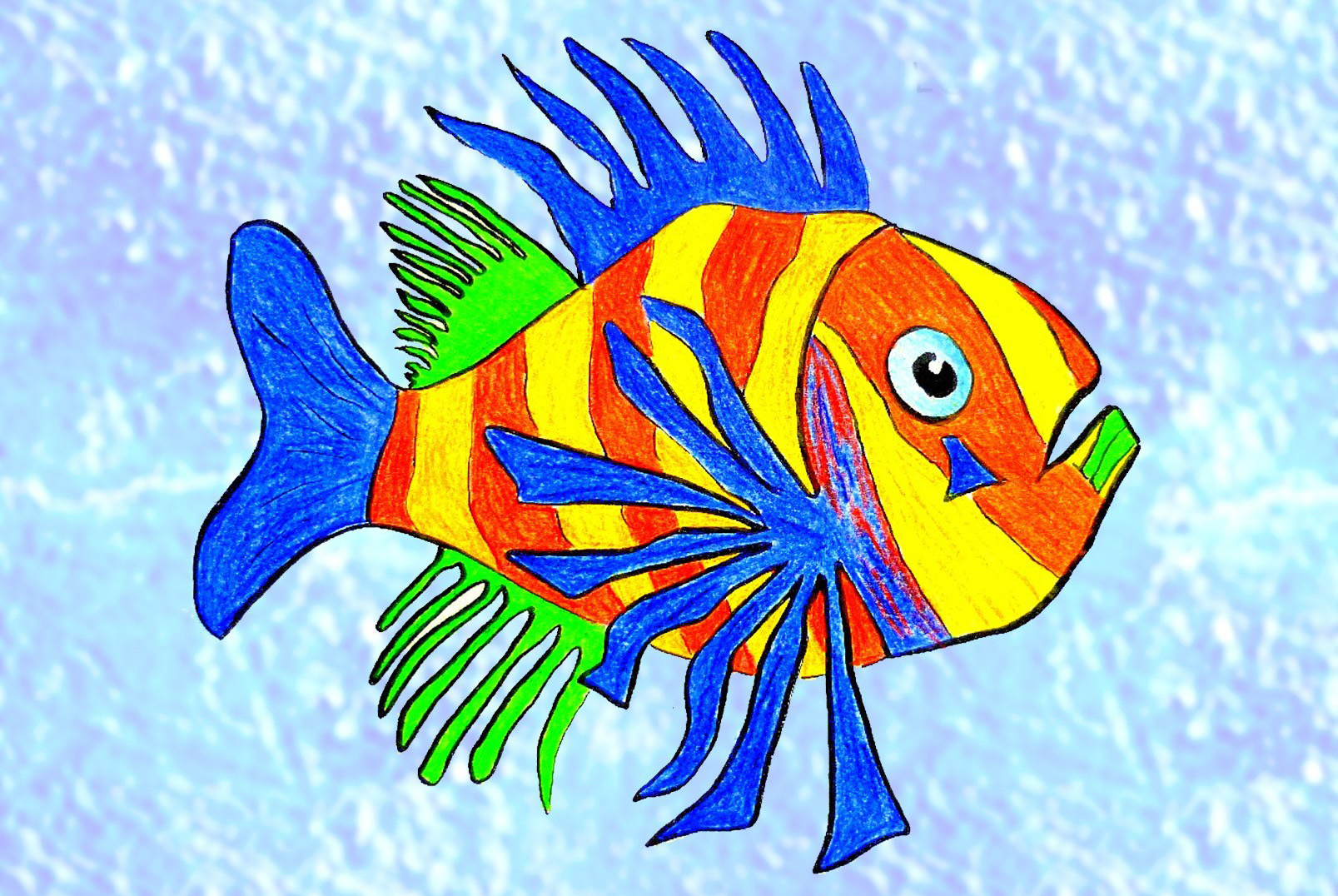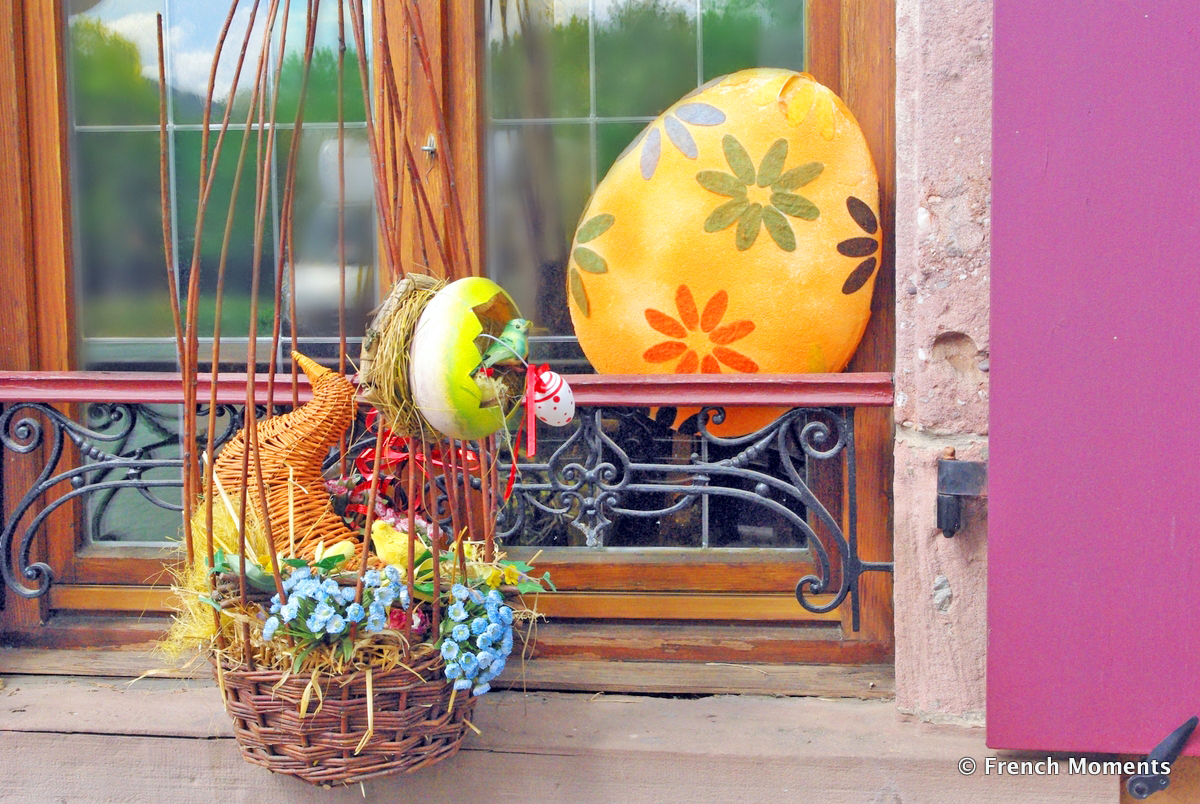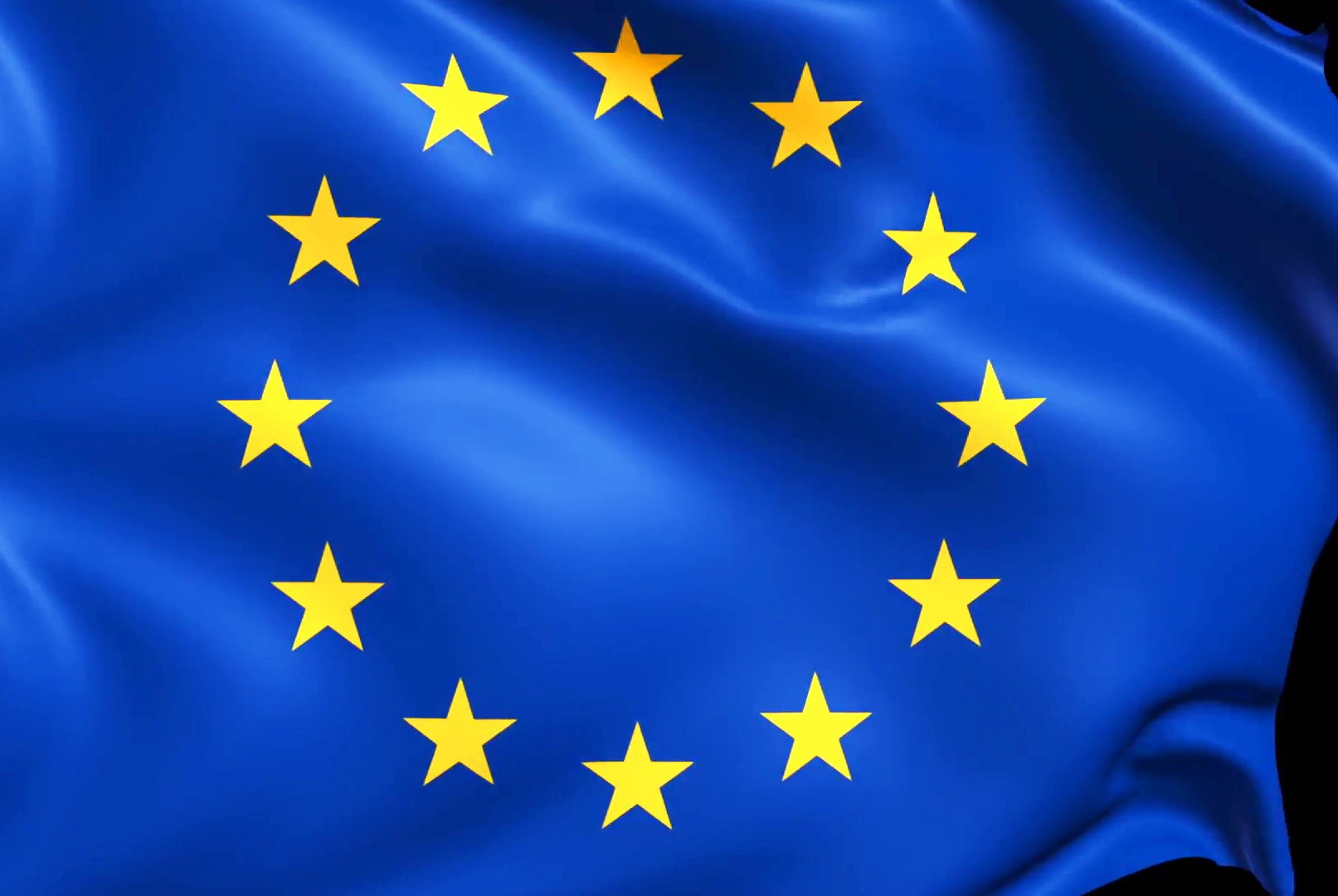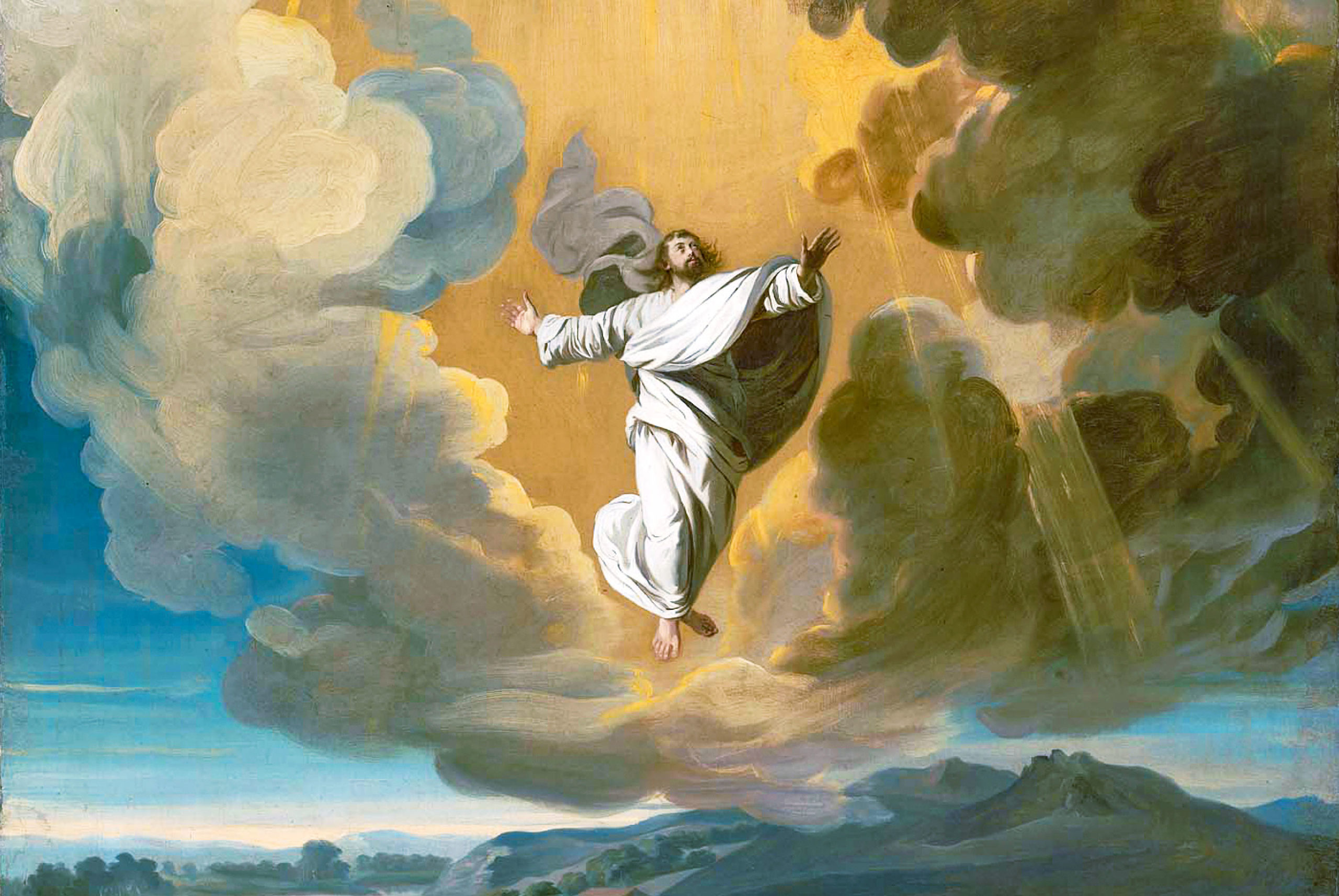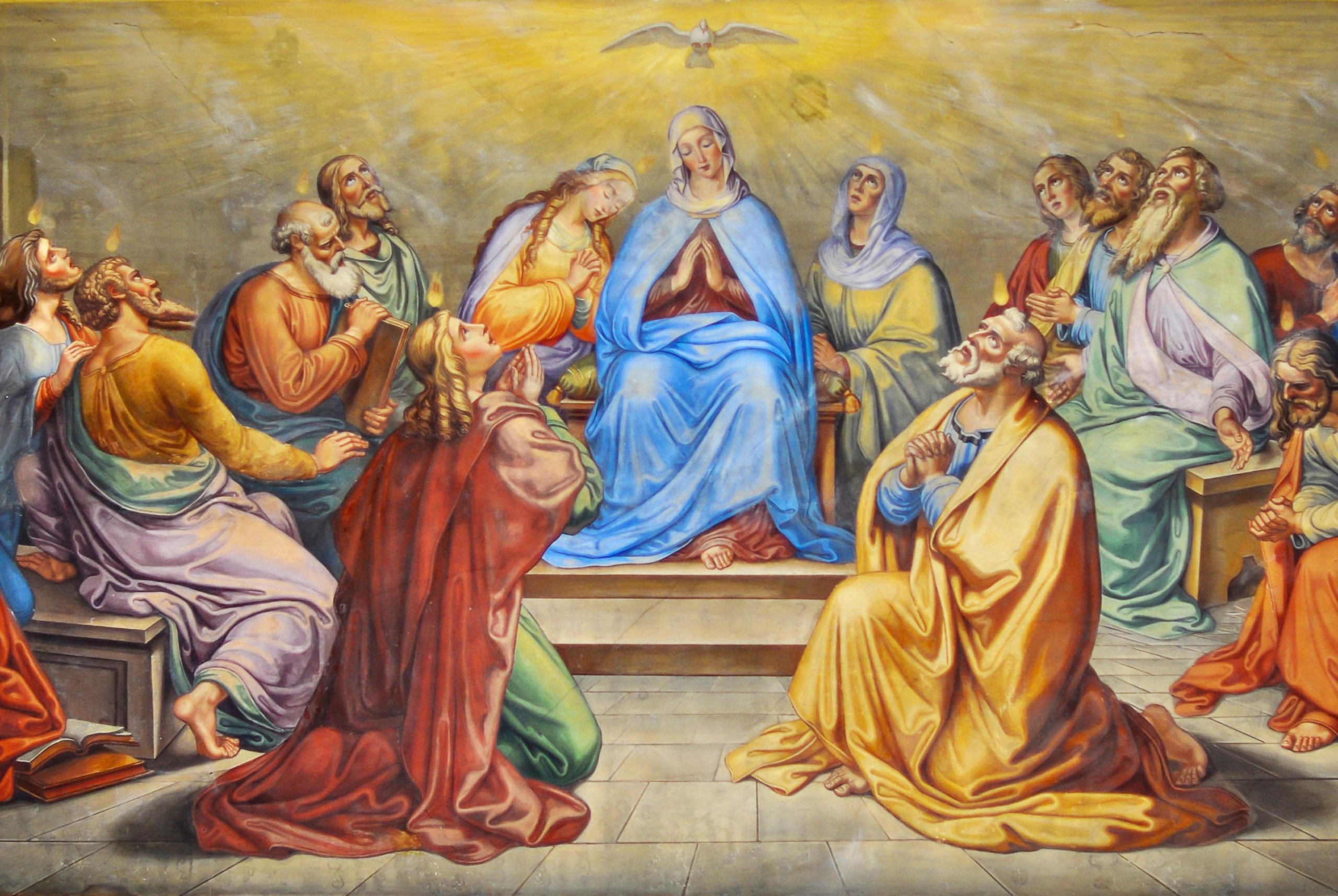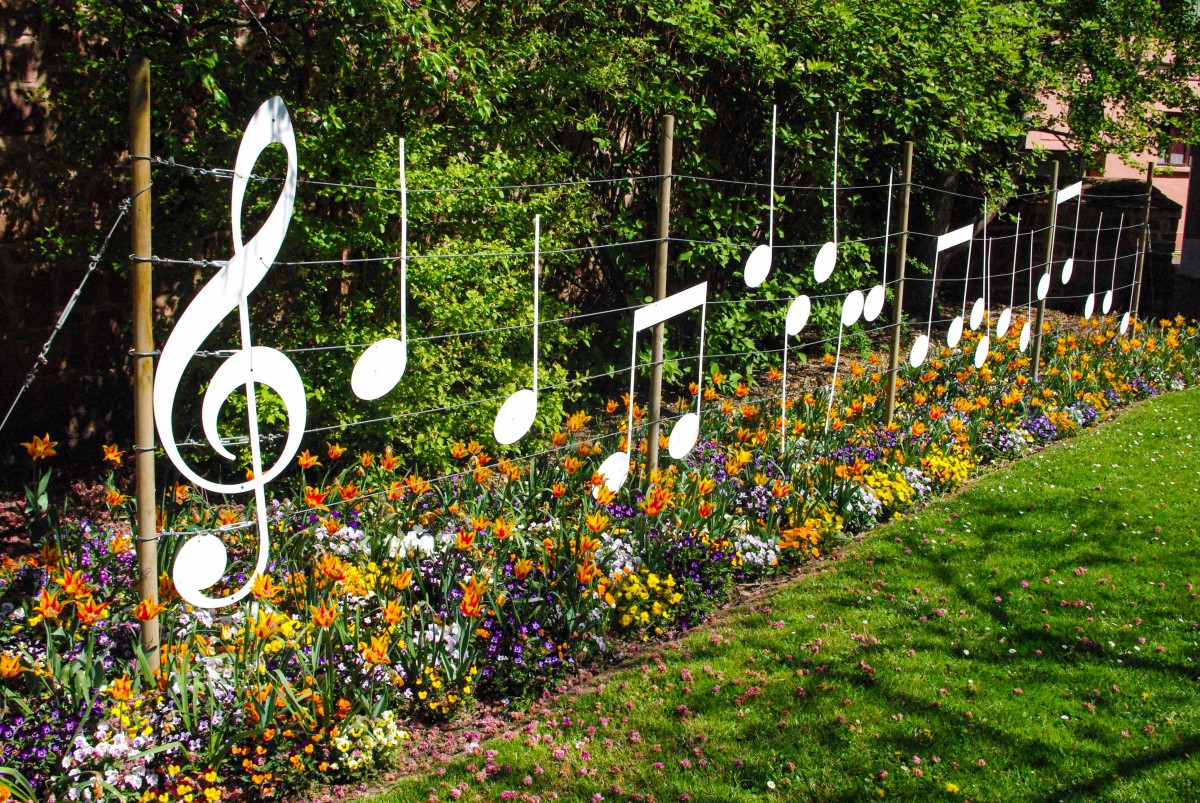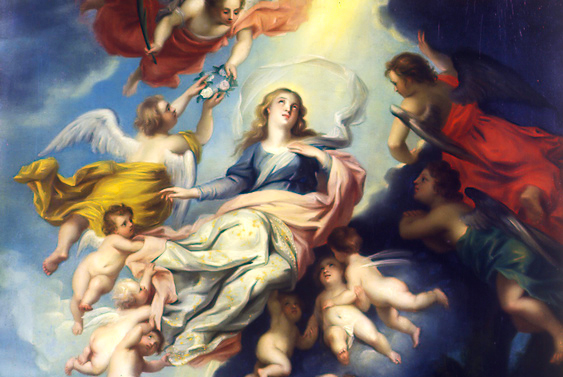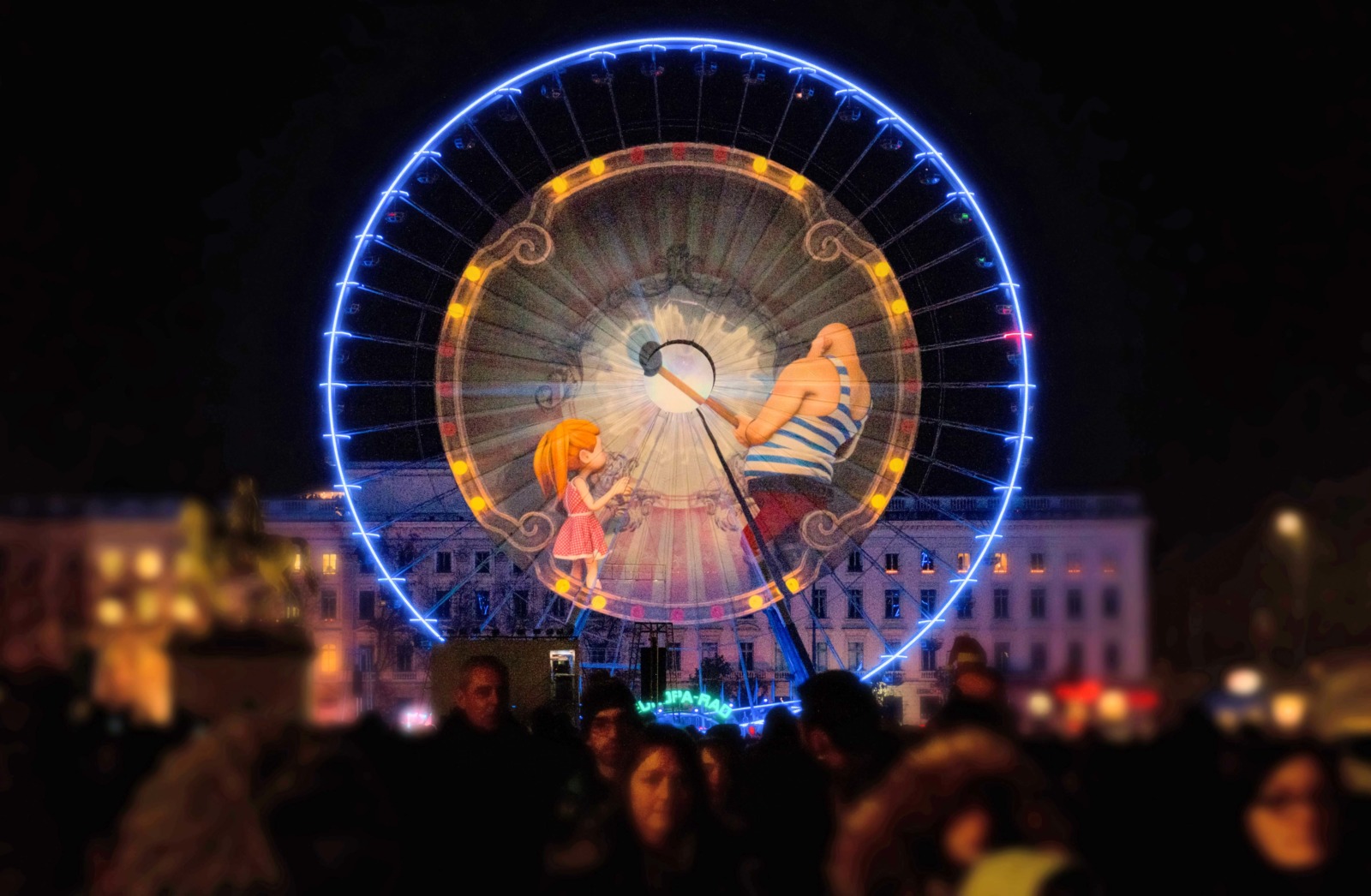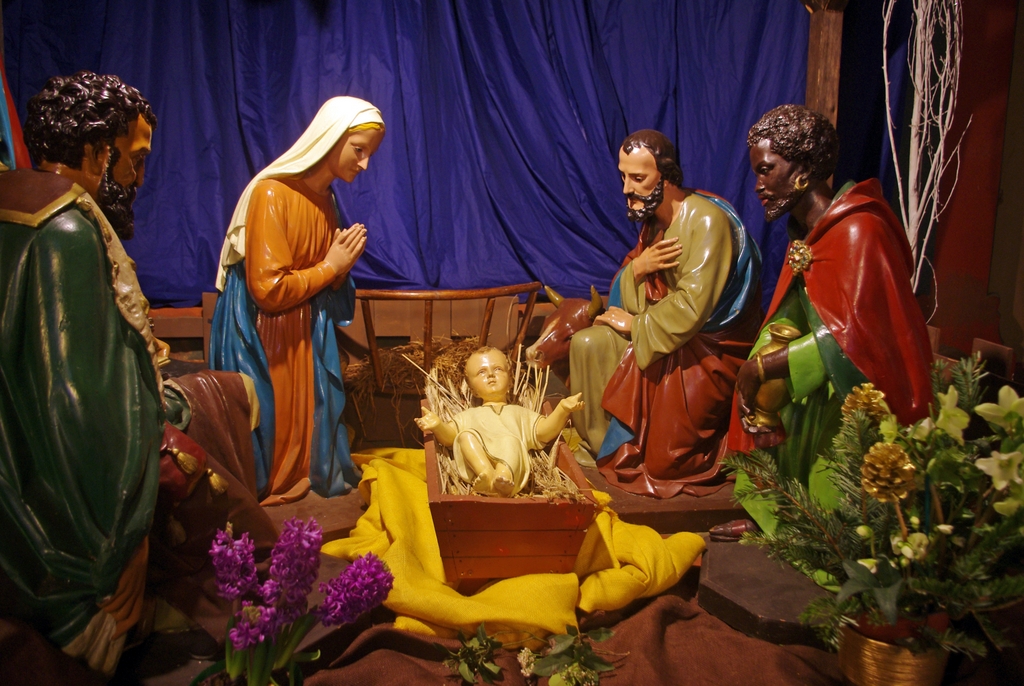April Fools’ Day is a big hit with French children, right alongside the Easter celebrations that come with springtime.
On 1 April, they gleefully take part in a quirky tradition: sticking paper fish onto the backs of unsuspecting adults.
Then they run off, laughing and shouting, “Poisson d’Avril !” (April Fish!).
If you’re in France that day, you might want to keep an eye on your back…
🎥 Watch this short video to learn more about April Fools’ Day in France:
The French traditions of April Fools’ Day
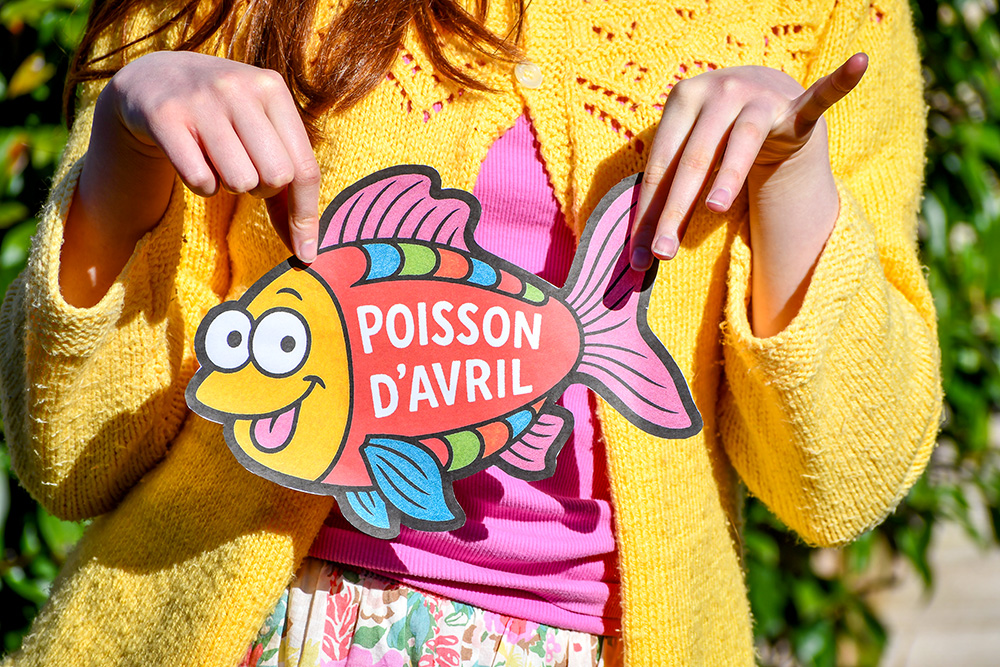
Watch your back on 1 April!
In France, April Fools’ Day is a time for light-hearted mischief, and no one is truly safe.
Whether you’re a child, a parent, or even a teacher, you’d better stay alert—because being the victim of a silly prank or an unexpected joke is almost a national sport on that day.
Children take the lead, of course.
It’s their perfect excuse to let their imaginations run wild and play harmless tricks on everyone around them—parents, grandparents, teachers, neighbours, even the postman.
Adults often join in the fun too, making it a day full of laughter, surprises, and shared giggles across generations.
A clever pun, a little prank, or a well-placed whoopee cushion… anything goes, as long as it’s in good humour!
Read our new post on April Fools’ Day 🐟 How to Survive April 1st in France (Field Notes from a Veteran)!!!
April Fools’ Day in France: the “Poisson d’Avril”
In France, the 1st of April has a very particular flavour.
It’s not just about pranks—it’s also about fish.
Yes, really.
The day is affectionately known as “le Poisson d’Avril” (April Fish), and the most iconic trick involves secretly sticking a paper fish onto someone’s back, then shouting “Poisson d’Avril !” before running off in delight.
The exact origin of this tradition remains a bit of a mystery.
Some say it dates back to 1564 when King Charles IX decided to change the start of the year from 1 April to 1 January (more on this below!).
People who clung to the old calendar became the target of jokes—and were even given fake gifts, including… fish.
Others link the symbol of the fish to Christian traditions, notably the ichthus used by early Christians in Roman times.
Whatever the roots, the fish has stuck—and so has the tradition.
Everyone must pay attention on the 1st of April to avoid being victims of practical jokes and general foolishness.
It is the ideal day for children (and grown-ups alike!) to tell funny jokes to those around them, including family members, friends, teachers, neighbours, colleagues at work, etc.
A new date has come!
Believe it or not, the New Year in France once began on the 1st of April.
Hard to imagine now, isn’t it?
But back in the Middle Ages, that was the norm in many parts of Europe.
Things changed rather abruptly in the mid-16th century.
In January 1563, King Charles IX—a monarch not particularly known for his sense of humour—decided to tidy up the French calendar.
His proclamation in Paris set out a clear goal: from now on, the year would begin on 1st January, bringing France in line with other parts of Europe that had already adopted this idea.
The official decree, known as the Edict of Roussillon, was signed in August 1564.
But the reform didn’t fully come into effect until January 1567, giving people time to adjust—or, at least, try to.
Legend has it…
Now, here’s where the story gets more colourful.
As you can imagine, not everyone was thrilled with the new rule.
Changing the calendar might sound trivial to us now, but at the time, it caused real confusion.
Think about it: it’s like telling people that from now on, Christmas would be in July.
You’d raise more than a few eyebrows, wouldn’t you?
So, many people just… kept celebrating the New Year around the old date, 1st April, either out of habit or quiet rebellion.
Others, eager to follow the king’s orders and appear more “modern”, began mocking those who clung to the old ways.
And how did they do that?
By playing tricks, of course—leaving fake gifts, sending out invitations to non-existent parties, and even offering presents that made no sense at all.
It was all a bit ridiculous.
And it stuck.
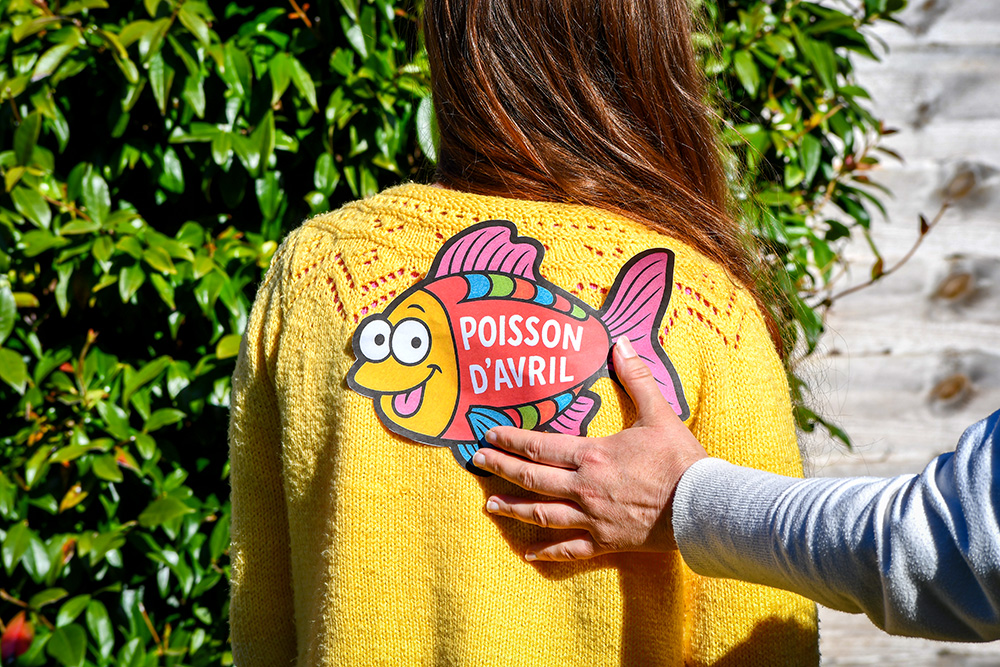
“Poisson d’Avril!”
One of the most popular pranks was giving someone a fish, real or fake, as a joke. Why a fish? Well, there’s a theory…
Back then, the 1st of April often coincided with the end of Lent, a solemn period in the Christian calendar when meat was off the menu.
But fish? That was allowed.
So during that time, fish became a symbol of the season—and sometimes, of the New Year celebrations themselves.
So when it came time to tease the “April fools”, people naturally turned to fish.
Not fresh ones from the market, but paper fish, false fish, fish that you could sneakily stick onto someone’s back while they weren’t looking.
And then laugh as they wandered around unaware, with others whispering and pointing behind them.
And that, according to legend, is how the “Poisson d’Avril” was born.
A prank, a protest, a celebration, a joke.
A way of laughing at those who refused to move with the times—
—or perhaps, a gentle nudge to remind us all not to take life too seriously.

Beware of the hoaxes in the media!
It has become a tradition in the French media to observe the commemoration of the 1st of April. Newspapers, magazines, radio, and the Internet relay fake stories.
But one should not take people for fools for long.
It is common practice for the media to reveal what is true and false the next day!
Here is a short selection of hoaxes published in France for April Fools’ Day.
Archaeological excavations found the village of Asterix
On the 1st of April 1993, the London newspaper The Independent announced that archaeologists had discovered Asterix’s village.
According to the British daily, the village is located in Le Yaudet, near Lannion in Brittany, at the very spot where René Goscinny, the creator of the comic strip, had imagined it in his books.
In fact, professors from Oxford and Brest Universities lent themselves to the game by declaring that they had found coins decorated with wild boar (Obelix’s favourite dish) and an incredible collection of menhirs.

The Eiffel Tower to move to Disneyland Paris
On April 1, 1986, Le Parisien published the disturbing news that the Eiffel Tower was about to be dismantled and then moved to Marne-la-Vallée, the site of the future Disneyland Paris.
The newspaper then revealed that the space left by the “Iron Lady” would be used to build a 35,000-seat stadium for the 1992 Olympic Games. Fortunately, it was just a prank!
![Disneyland Paris © Saturne - licence [CC BY-SA 2.0] from Wikimedia Commons](https://frenchmoments.eu/wp-content/uploads/2017/11/Disneyland-Paris-©-Saturne-licence-CC-BY-SA-2.0-from-Wikimedia-Commons.jpg)
The rotation of the earth slowed down by wind turbines
On 1 April 2009, David Pujadas announced in the 8 pm news programme on France 2 that the multiplication of wind turbines on the earth’s surface would slow down its rotation.
This news would result in the lengthening of the days. In fact, one day would pass from 24 to 25 hours.
Homer Simpson’s voice used by the SNCF
On 1 April 2009, the French railway company contacted Philippe Peythieu (Homer’s French voice in the “The Simpsons” series) to surprise the commuters and travellers.
Indeed, the dubbing of Homer’s character replaced the familiar voice of SNCF announcements to trap passengers.
We could therefore hear crazy announcements sounding in about fifteen French stations (Rouen, Toulouse, Paris…), such as:
“The train from Alaska is expected to arrive on the Milky Way. Beware of bears and the platform’s edge”.
Then, the SNCF struck back on 1st April 2015, announcing trains coming from Pretoria or going to Sydney.
Giraffes spotted on the French Riviera
“Nature takes back its rights”.
This is a phrase often heard since the beginning of the Spring 2020 lockdown in France.
Well, municipal officers in Beaulieu-sur-Mer, on the French Riviera, encountered strange animals in the streets of their city.
🦒 Pendant le confinement #COVIDー19, la nature revient en ville ! En témoigne cette girafe venue de la Petite Afrique aperçue hier en plein coeur de ville … 🙂 pic.twitter.com/SGPBGhyRcN
— Beaulieu-sur-Mer (@Beaulieu06310) April 1, 2020
Indeed, nature took back its rights, with animals coming from far away, such as the famous Beaulieu giraffes visible in this Twitter publication of the town.
The Tour de France in South Korea
Also, on the 1st of April 2020, French media reported that the famous Tour de France bicycle race would be taking place in South Korea amid the pandemic.
Our own Poisson d’Avril!
Did you know? As Paris is getting ready for the 2024 Olympic Games, the French authorities are seriously planning to move the Eiffel Tower to the top of the Champs-Élysées. The new vista would look like this:
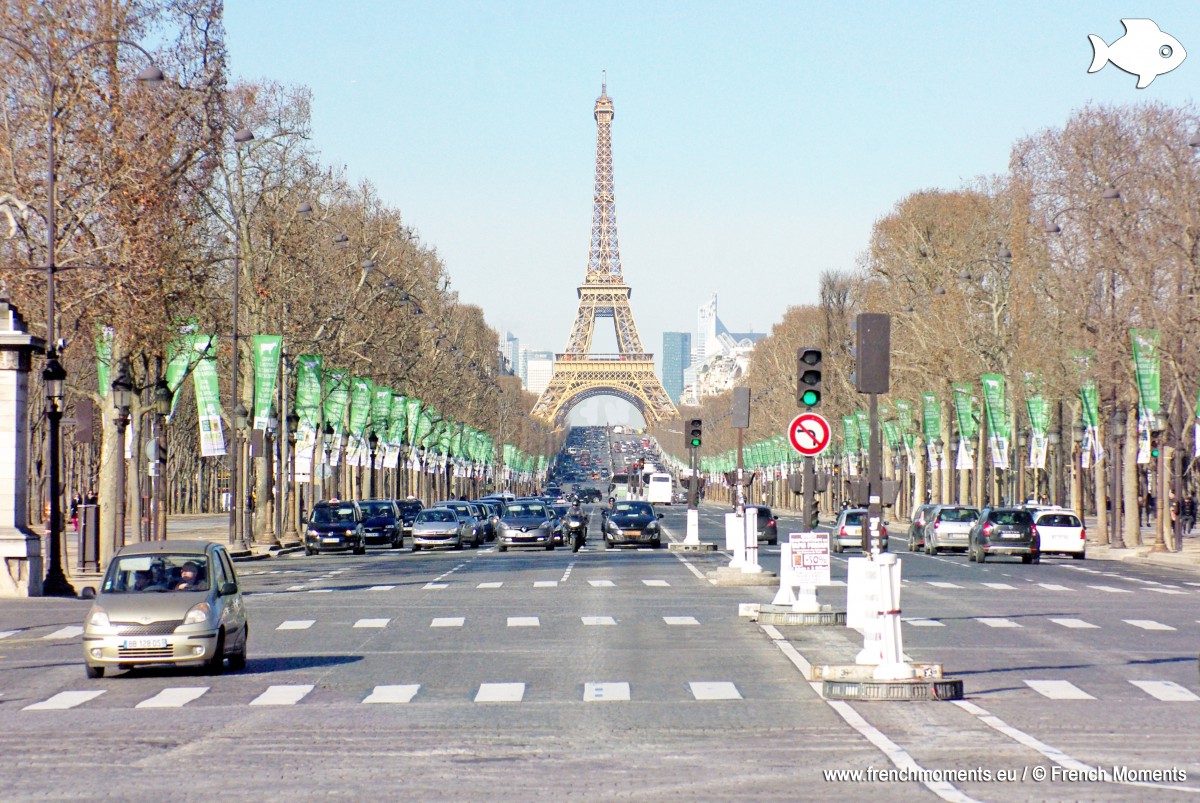
Notice the subtle reference to a fish! Despite the clue, many people believed the whole story (for one day only as we revealed the hoax the next day!!)
Read more about our 2015 April Fools’ Day joke!
Top 20 April Fools’ Day Hoaxes for fun!
Here are some ideas for April 1st hoaxes that may inspire you.
Announce, claim, or tell your friends the following (and don’t forget to tell the truth right afterwards so that you don’t leave the person in error indefinitely.)
- A new French airline is set to offer passengers the chance to travel from Paris to Marseille in a hot air balloon.
- The Mona Lisa reveals her true identity; she is the long-lost twin sister of king Louis XIV.
- A leading French perfumer releases a new fragrance, “Eau de Fromage.”
- The Palace of Versailles has announced that they will organise video game tournaments for visitors.
- The Monnaie de Paris (Paris mint) announced they would be issuing chocolate coins from the 1st of April.
- Notre Dame Cathedral announces they will be organising French cheese tastings shortly after the monument reopens at the end of 2024.
- The Louvre Museum announces a new part of the museum will be entirely dedicated to the artistic portrayal of the iconic macaron.
- A French café announces offering a new menu item: crêpes served with a side of escargot (snail).
- The Eiffel Tower announces plans to build a mini version of itself in every French village.
- French cheese makers announce the launch of a new cheese infused with the essence of freshly cut grass.
- The French government has passed a new law requiring everyone to dye their hair green.
- A Parisian grocery store announces that they are now selling “candy-flavoured” fruits and vegetables.
- French scientists have invented a machine that can make it rain chocolate.
- A local restaurant in Marseille announced introducing a new “dog-friendly” menu.
- The French government has declared the 1st of April to be National Croissant Day.
- On the 1st of April, all schools in France are cancelling classes for the day.
- A new law in Normandy requires all citizens to wear a clown nose on the 1st of April.
- Apple has just launched a new product called the iFool, which will only be available in Paris this year.
- A pet store in Lyon announces that they are now selling “unicorns”.
- A new law passed in France requires everyone to wear funny hats on the 1st of April.
Creating a Fish for April Fools’ Day
Nowadays, children make and colour April Fish at school or home. Download our Poissons d’Avril Worksheet and start colouring them.
Learn more!
- The full guide to Easter in France: origins, traditions, celebrations, chocolate, Easter eggs and bunnies!
- All there is to know about the beautiful season of Spring in France.

Pin it for later
Did you enjoy what you read? Please spread the word on Facebook or Twitter. And pin the image below on Pinterest:
